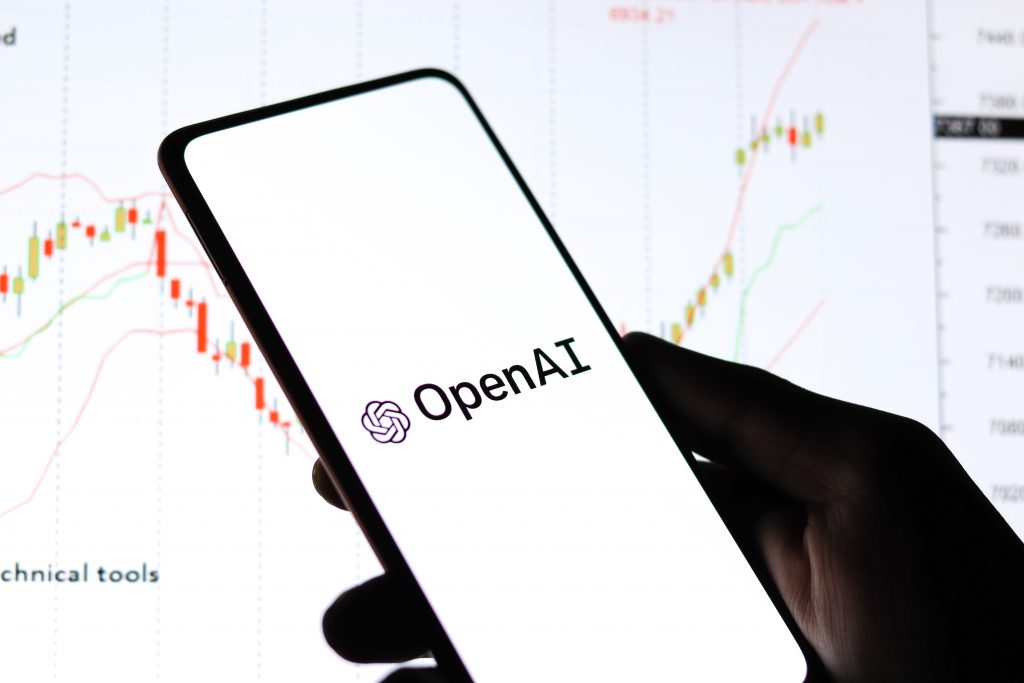
In the year since OpenAI released ChatGPT, the chatbot has been recognized as the fastest-growing consumer app in digital history and has already been upgraded with GPT-4. (Source: Adobe Stock)
As Barely Regulated ChatGPT Rockets Up Sales Charts, Groups Raise Safety Issues
One year and $207 billion later, OpenAI is celebrating the year anniversary of ChatGPT’s release on Nov. 30, 2022. Two months after its launch, ChatGPT was recognized as the fastest-growing consumer application in history. It remains so today, according to a story on techrepublic.com, which describes the arc of the company’s growth.
Not a bad year for OpenAI. Although even with all the recent uproar over Sam Altman’s leaving/not leaving drama. The latest version of ChatGPT, GPT4, and others are already laying the new groundwork for what promises to be another banner year for AI across the board. But it has not been all hearts and flowers. As recently as last week, developers were still asking for some legal regulations for AI.
“On Nov. 26, the U.S., U.K., and other countries among the Group of Seven (G7) nations released security-by-design guidelines for AI cybersecurity. These guidelines constitute the first international agreement regarding the security of AI and may shape the development of ChatGPT and other generative AI chatbots in the future.
The tech leaders understand the power of this new AI far better than politicians do.
Some U.S. companies have signed a voluntary list of assurances regarding generative AI safety and how they will prevent people from creating misinformation with this technology. The EU is also working on guidelines that will likely influence how generative AI products, including ChatGPT, develop in the next year.
The Breakdown
While chatbots are getting headlines worldwide, it still has not caught on among much of the general public as it would have seemed because of the hype.
A Pew Research Study published in August 2023 noted that in a survey of 5,057 Americans, only 24% of people who had heard of ChatGPT had used it. More people who had heard of ChatGPT used the generative AI chatbot for entertainment (20%) than for work (16%).
However, the impact that chatbots and generative AI have had on day-to-day American business is catching on.
Other more commercially-minded companies such as Google, Microsoft, and Amazon now have more robust generative AI chatbot products of their own — such as Google Bard, Microsoft’s Copilot, and Amazon Q, respectively — than they did before ChatGPT’s release.
“Competition is certainly heating up with conversational chatbots available from others such as Google and Anthropic,” said Chandrasekaran. “In addition, there has been an explosion in both closed-source and open-source LLMs in the past year, many of which were a response to ChatGPT’s viral adoption. While the demand for the consumer version of the model has seen an uneven demand, often varying across months, the demand for LLMs in the enterprise continues to be high.”
The Future Keeps Arriving
There is a lot of positive information in this article that should make you feel good about the immediate impact of this wave of AI and the future impact it is currently building. It is going to be a world with more equality between individuals than perhaps has ever been known in societies before.
While there are issues addressed in this piece about copyright infringement, data hijacking, and other problems in the business, the article clearly shows the path forward for nearly all types of businesses will be with chatbot/generative AI technology.
“We should expect ChatGPT to handle more modalities in the future beyond text and code,” explained Chandrasekaran. “Already, image integration has been a huge plus, and we can expect speech and video capabilities in 2024 and beyond. In addition, we should expect more autonomous actions from ChatGPT in the midterm, as OpenAI has signaled its intentions to deliver more autonomous agent features.”
Megan Crouse’s article is loaded with links and information that paints a picture of the success OpenAI has had and expects to continue.
read more at techrepublic.com







Leave A Comment